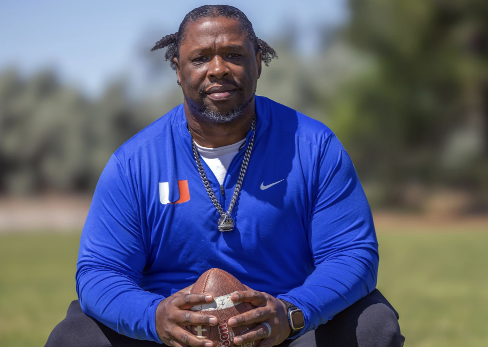Modeling how to disagree respectfully, for your kids
Published 12:00 am Thursday, February 1, 2024

- 497342123
Everyone always agrees with you, right? Of course not. We live in a world full of diverse opinions, where disagreements are a natural part of life. Conflict can lead to growth, by trying to understand different perspectives — but too often disputes end in hurt feelings and resentment. With round-the-clock news on a global scale, we can form an ever-expanding set of opinions. Coupled with a belief that whatever we think and feel is right, and those with different ideas are wrong, and it’s no wonder that discord follows.
The effects of untamed anger can become increasingly destructive. Disagreements are inevitable, but how you treat others is a choice. While toddler disputes may end with a broken toy and tears, it is possible to manage differing opinions with respect and help guide children to do the same.
“The life you live is the lesson you teach” is a useful saying to follow when helping children find respectful resolutions to conflict. As Dr. Jennifer Cooper, a Hermiston family therapist, notes, “Parents need to model the behavior they want to see in their kids. If you want your kids to be respectful, you need to show them how you treat others with respect.” Much of learning is imitation and children copy what they see. If a parent yells when they’re mad, it probably won’t be long before their children do the same. On the other hand, if you can be courteous when disagreeing with someone, your children are likely to adopt similar mannerisms, over time.
Sharing your perspective is important when tensions are high. Using “I statements” about how you feel in a given situation can lead to better resolutions than slinging accusations. No one is a mind reader, so be direct about your wishes and recognize you may need to ask questions, rather than making assumptions, to fully understand someone’s actions.
Although my kids are always sure that their siblings are doing things just to annoy them, they’re usually able to see things more clearly once we talk through and listen to the other’s perspective. It’s challenging to really listen and understand the viewpoint of someone else during a heated debate, but doing so often diffuses the situation and can get to the heart of the matter.
Another useful way to think about conflict is to remove right and wrong from situations where it doesn’t apply. There is no morally superior answer to whether or not pineapple belongs on a pizza, it is simply a matter of preference. Yet it’s easy to become passionate defenders of the things we love and feel offended if others don’t share our view.
Limited space and resources often make it hard to satisfy everyone’s desires in a family. But limitations can encourage flexibility and creative solutions, in both children and adults. Competition can create an ideal environment for growth and innovation, but it’s crucial to provide a supportive environment where kids can share their opinions without fear of judgment.
An interesting podcast our family enjoys is called “Smash, Boom, Best,” where two people argue in favor of things like “chocolate vs. cheese,” “invisibility vs. flying,” and “books vs. movies.” A guest judge chooses a winner, but listeners can pick their own favorite based on the arguments presented. They also offer debating tips in each episode
and it’s fun to hear the creative arguments presented. I always learn something new and I enjoy listening to what my kids think about it. We rarely all pick the same thing and it’s helped us realize that we can all be right in what we prefer, even if it is different.
More than anything, when dealing with disagreements, it helps to keep in mind that everyone is doing their best. Recognizing that each person you meet has a unique set of experiences that lead them to act and believe the way they do can create a greater tolerance and appreciation for differences. We don’t all have to see eye-to-eye in order to get
along and if we work on handling disagreements with respect, then our lives can be enriched by the diversity we encounter.









